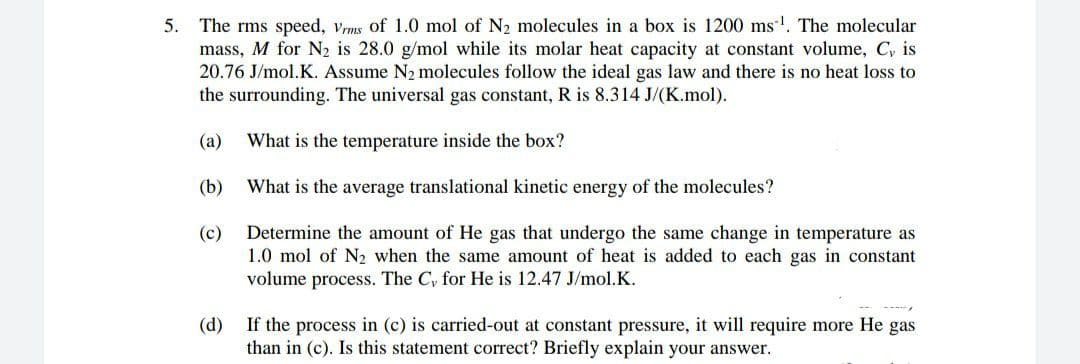5. The rms speed, Vrms of 1.0 mol of N2 molecules in a box is 1200 ms. The molecular mass, M for N2 is 28.0 g/mol while its molar heat capacity at constant volume, C, is 20.76 J/mol.K. Assume N2 molecules follow the ideal gas law and there is no heat loss to the surrounding. The universal gas constant, R is 8.314 J/(K.mol). (a) What is the temperature inside the box? (b) What is the average translational kinetic energy of the molecules? Determine the amount of He gas that undergo the same change in temperature as 1.0 mol of N2 when the same amount of heat is added to each gas in constant volume (c) process. The C, for He is 12.47 J/mol.K.
Kinetic Theory of Gas
The Kinetic Theory of gases is a classical model of gases, according to which gases are composed of molecules/particles that are in random motion. While undergoing this random motion, kinetic energy in molecules can assume random velocity across all directions. It also says that the constituent particles/molecules undergo elastic collision, which means that the total kinetic energy remains constant before and after the collision. The average kinetic energy of the particles also determines the pressure of the gas.
P-V Diagram
A P-V diagram is a very important tool of the branch of physics known as thermodynamics, which is used to analyze the working and hence the efficiency of thermodynamic engines. As the name suggests, it is used to measure the changes in pressure (P) and volume (V) corresponding to the thermodynamic system under study. The P-V diagram is used as an indicator diagram to control the given thermodynamic system.

Step by step
Solved in 4 steps with 4 images









